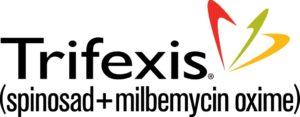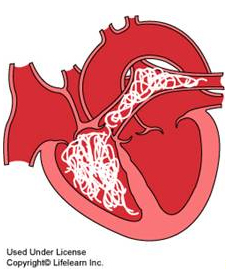
Our Seattle Vets Asked: Have you seen intestinal worms in your cat or dog’s stool? They are not only gross, they can be dangerous.
 Parasites are common in Seattle and can affect our pets in many different ways, from simply causing mild discomfort to creating very severe (and in some cases fatal) health problems if left untreated. Humans are not immune to parasites either, as certain diseases associated with parasites can be transmitted from your pet to you (zoonotic).
Parasites are common in Seattle and can affect our pets in many different ways, from simply causing mild discomfort to creating very severe (and in some cases fatal) health problems if left untreated. Humans are not immune to parasites either, as certain diseases associated with parasites can be transmitted from your pet to you (zoonotic).
Our pets are ideal habitats for many different types of worms, including roundworms, tapeworms, hookworms, and whipworms, as well as a few species of microscopic protozoa. Protozoal organisms can include coccidia, toxoplasma, giardia, and amoeba. Many of these parasites can be found in as familiar a place as your own backyard.
Roundworms, hookworms, whipworms and tapeworms are very productive. According to CAPC (The Companion Animal Parasite Council) “one worm can produce more than 100,000 eggs per day, which are then passed in the pet’s feces and spread throughout the area the pet roams. Once in the environment, some of these eggs can remain infective and present a health risk for your pet and humans for years.”
Screening for Intestinal Parasites
 Many intestinal parasites cannot be seen with the naked eye. This is why we must use microscopic analysis to accurately diagnose a parasitic infection. Hawthorne Hills Veterinary Hospital (your Seattle veterinarian) is able to screen for infection by sending a small sample of your pet’s feces to our lab for testing. In cases of acute diarrhea, our doctors will also look at a sample under the microscope to identify abnormal bacteria or organisms. Many of the areas our dogs frequent (the dog parks, hiking, swampy off-leash areas) are contaminated with Giardia. You are at risk along with your pets.
Many intestinal parasites cannot be seen with the naked eye. This is why we must use microscopic analysis to accurately diagnose a parasitic infection. Hawthorne Hills Veterinary Hospital (your Seattle veterinarian) is able to screen for infection by sending a small sample of your pet’s feces to our lab for testing. In cases of acute diarrhea, our doctors will also look at a sample under the microscope to identify abnormal bacteria or organisms. Many of the areas our dogs frequent (the dog parks, hiking, swampy off-leash areas) are contaminated with Giardia. You are at risk along with your pets.
The Companion Animal Parasite Council (CAPC) recommends that a fecal analysis be performed 2-4 times during the first year of life for puppies and kittens and at least 1-2 times per year for adult animals. Frequent screens ensure that we are not missing infections, are able to treat the most vulnerable patients quickly, and also to reduce the likelihood of contaminating the environment and passing parasites to other pets and people. Our veterinarians advise pet owners to do their part and keep their outside pets healthy and on a year round parasite preventive. Please call us to get your pet protected today.
Treatment
Once our laboratory has identified a parasitic infection, our Seattle veterinarian can recommend an appropriate deworming medication. Some parasites require that the pet’s environment also be decontaminated. Most deworming treatments are very easy and quick. Follow-up fecal screening is needed three to four weeks after treatment to ensure that the parasitic infection has been fully eliminated.
Once the problem is treated, the next step is to prevent reinfection. Animal feces are the most common source of parasites, so it is important to keep your pet away from areas where other animals have defecated and to keep your yard as clean as possible by disposing of bowel movements immediately.
Year-round flea and parasite prevention
Our doctors recommend year-round prevention by using one of the products below.
For Dogs:
Trifexis: 
Sentinel: 
For Cats:
Heartworms
 Although Seattle is not a high-risk area for heartworms, dogs can become at-risk if travelling to other areas where it is a very serious problem. The American Heartworm Society explains that “heartworms have been found in all 50 states. Certain areas have a higher risk of heartworm. Some very high risk areas cover large regions, such as near the Atlantic and Gulf coasts and along river tributaries. Most states have ‘hot spots’ where the heartworm infection rate is very high compared to other areas in the same state. Factors affecting the level of risk of heartworm infection include the climate (temperature, humidity), the species of mosquitoes in the area, presence of mosquito breeding areas and presence of animal reservoirs (such as infected dogs or coyotes).”
Although Seattle is not a high-risk area for heartworms, dogs can become at-risk if travelling to other areas where it is a very serious problem. The American Heartworm Society explains that “heartworms have been found in all 50 states. Certain areas have a higher risk of heartworm. Some very high risk areas cover large regions, such as near the Atlantic and Gulf coasts and along river tributaries. Most states have ‘hot spots’ where the heartworm infection rate is very high compared to other areas in the same state. Factors affecting the level of risk of heartworm infection include the climate (temperature, humidity), the species of mosquitoes in the area, presence of mosquito breeding areas and presence of animal reservoirs (such as infected dogs or coyotes).”
Heartworm infections are very serious and costly to treat. The worms grow and live in the pet’s bloodstream, lungs and heart and because of this, these infections can kill or severely incapacitate your pet. Our veterinarians can perform a heartworm test, which consists of a quick blood draw that is run in-house in 5-10 minutes. Prevention is the best cure for heartworm disease and a year-round preventive program is the gold standard.
Reducing risks for your family (Tips from The Companion Animal Parasite Council)
You can reduce the risk of parasitic infection to your family by eliminating parasites from pets; restricting access to contaminated areas, such as sandboxes, pet “walk areas,” and other high-traffic areas; and practicing good personal hygiene. Disposing of pet feces on a regular basis can help remove potentially infective worm eggs before they become distributed in the environment and are picked up or ingested by pets or humans.
- Practice good personal hygiene.
- Use a preventative flea and/or tick treatment year-round.
- Only feed pets cooked or prepared food (not raw meat).
- Minimize exposure to high-traffic pet areas.
- Clean up pet feces regularly.
- Visit your veterinarian for annual testing and physical examination.
- Administer worming medications as recommended by your veterinarian.
- Ask your veterinarian about parasite infection risks and effective year-round preventative control measures administered monthly.
The Companion Animal Parasite Council
The Companion Animal Parasite Council (CAPC) is an independent council of veterinarians and other animal healthcare professionals established to create guidelines for the optimal control of internal and external parasites that threaten the health of pets and people. It brings together broad expertise in parasitology, internal medicine, public health, veterinary law, private practice and association leadership. Initially convened in 2002, CAPC was formed with the express purpose of changing the way veterinary professionals and pet owners approach parasite management. The CAPC advocates best practices for protecting pets from parasitic infect


